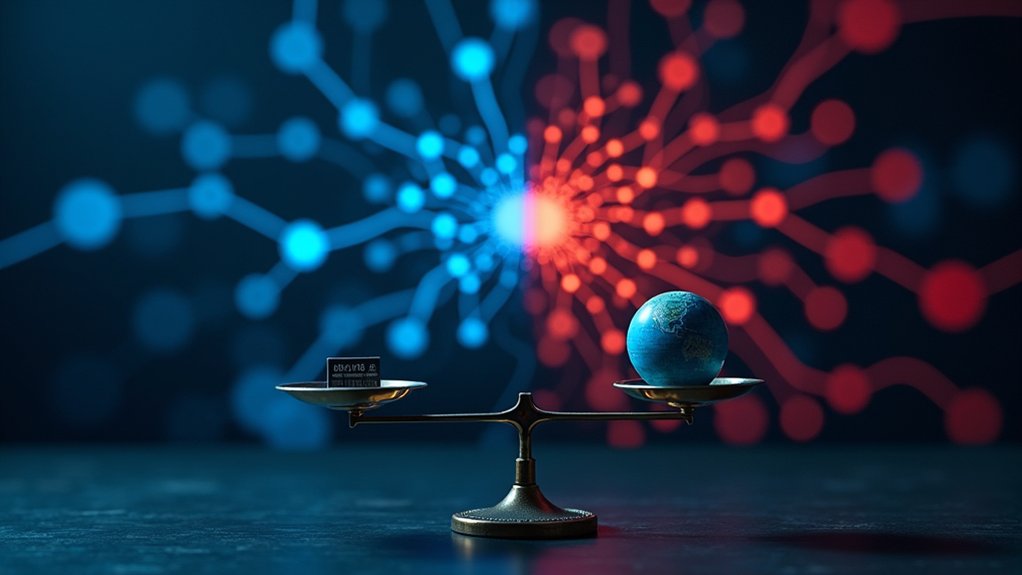Organizations implementing generative AI need clear rules for responsible usage. Best practices include ensuring high-quality data, regular testing of AI systems, maintaining transparency through documentation, and complying with relevant regulations. Human oversight remains essential to verify AI outputs and address potential biases. Strong data privacy protocols and security measures protect sensitive information. Companies should establish ethical guidelines while pursuing business goals. These foundational principles help build trustworthy AI systems that deliver reliable results.

As generative AI continues to transform industries worldwide, organizations are searching for ways to use these powerful tools responsibly. Companies need clear rules about how AI can be used in their business. These rules should cover data privacy, security, and which AI models to use. Human oversight is also important to make sure AI systems work as intended. This approach helps create AI solutions that prioritize enduring ethical values while meeting business objectives.
The quality of data used to train AI systems matters a lot. Organizations should use diverse, high-quality datasets and clean them before use. Regular updates to training data help AI systems stay current. Teams should check their data for bias and set up systems to manage data properly.
Garbage in, garbage out: AI excellence demands pristine, diverse data and vigilant bias monitoring.
Testing is key to responsible AI use. Companies are creating thorough tests for their AI models and checking performance often. Some use special tests designed to find problems in the AI systems. Setting benchmarks helps measure if an AI model is reliable. A test and learn approach with small, controlled groups allows organizations to identify limitations and refine applications.
Many organizations now focus on making AI systems more transparent. They document how models work and explain AI outputs clearly. They keep records of AI decisions and tell users about any limitations or biases the system might have.
Staying on the right side of regulations is essential for AI users. Companies conduct ethical reviews of their AI systems and get user consent for data use. Many work with legal experts to make sure they follow all rules.
The best organizations view AI as a continuous learning process. They collect feedback to improve their models and bring together experts from different fields. Regular retraining helps AI systems get better over time.
User experience remains at the center of good AI design. Well-designed interfaces make AI tools easier to use. Organizations add safeguards to prevent misuse and provide clear guidance about what AI can and can't do. They also work to make AI accessible to all users. Successful implementation requires alignment with strategic business objectives to ensure generative AI delivers measurable value to the organization.
Frequently Asked Questions
How Do I Evaluate the Quality of Ai-Generated Content?
Evaluating AI-generated content requires checking for factual accuracy, relevance, and coherence.
Experts recommend cross-referencing information with reliable sources and looking for inconsistencies. They also suggest examining the language for unnatural patterns or repetitive phrases.
Ethical considerations matter too – content should be unbiased and properly attribute sources.
The evaluation process isn't different from reviewing human-created work but requires extra attention to AI-specific issues.
Can Generative AI Replace Human Creativity Entirely?
Generative AI cannot fully replace human creativity.
While AI tools can produce impressive content, they lack lived experiences, emotional depth, and true understanding of context.
AI works best when paired with human guidance.
Humans provide the original concepts, cultural understanding, and emotional connections that AI cannot replicate.
The most effective approach combines AI's speed and pattern recognition with uniquely human creative abilities.
What Ethical Concerns Should I Consider When Using Generative AI?
Ethical concerns with generative AI span four key areas.
Privacy issues include risks of exposing sensitive data and questions about how companies store information.
Bias problems occur when AI reflects unfair societal patterns.
Transparency concerns arise from AI's "black box" nature, making accountability difficult.
Finally, there's the societal impact, including potential job losses and economic inequality as AI replaces certain human tasks.
How Can I Detect Ai-Generated Content From Human-Created Work?
Detecting AI-generated content is becoming easier with specialized tools.
Experts look for patterns like overly perfect grammar, repetitive structures, and lack of personal details.
AI writing often shows consistent paragraph lengths and generic language.
Tools like GPTZero analyze text for machine-like qualities.
Human work usually contains more unique perspectives, cultural references, and emotional nuances that AI can't easily replicate.
Are There Legal Implications for Using Ai-Generated Intellectual Property?
Legal experts warn that AI-generated intellectual property carries significant risks. Users can face copyright infringement claims if AI models reproduce existing protected works.
There's uncertainty about who owns AI outputs – the user, developer, or neither. Companies using AI-created content may need to defend against lawsuits from original creators.
The law hasn't kept pace with AI technology, leaving many questions unanswered in this rapidly evolving area.









